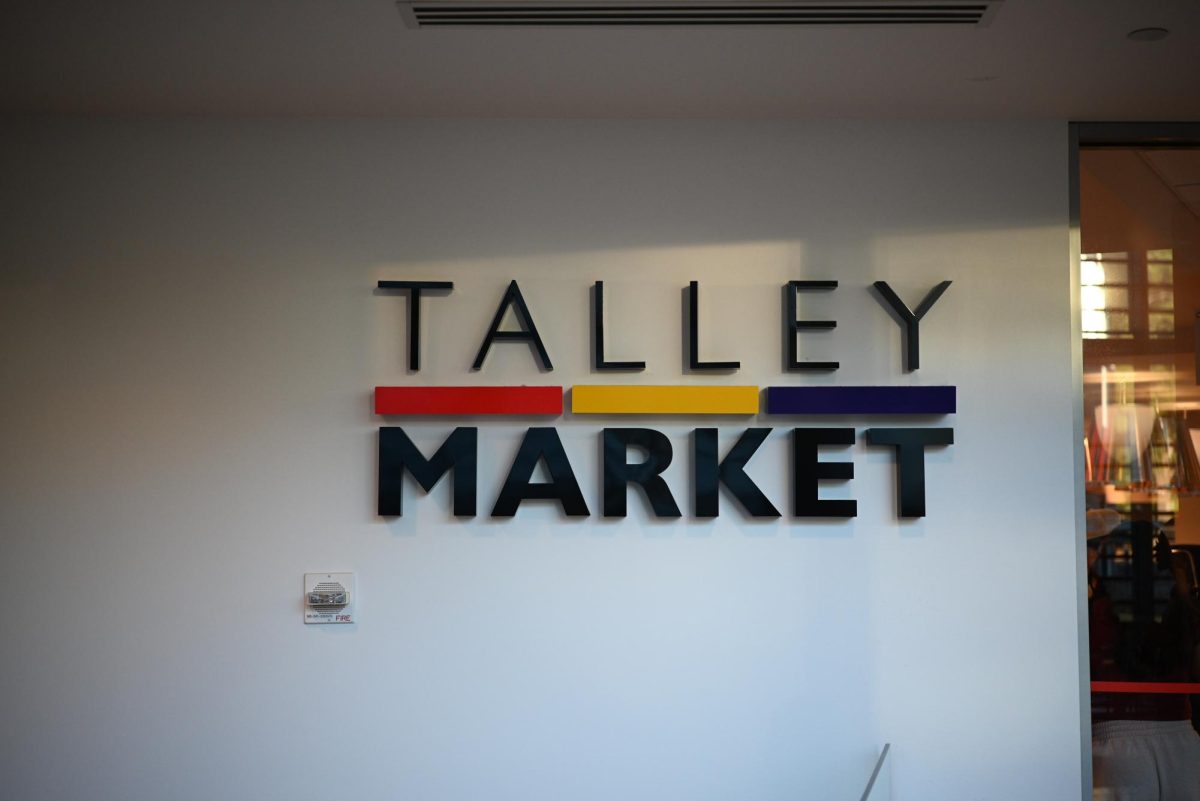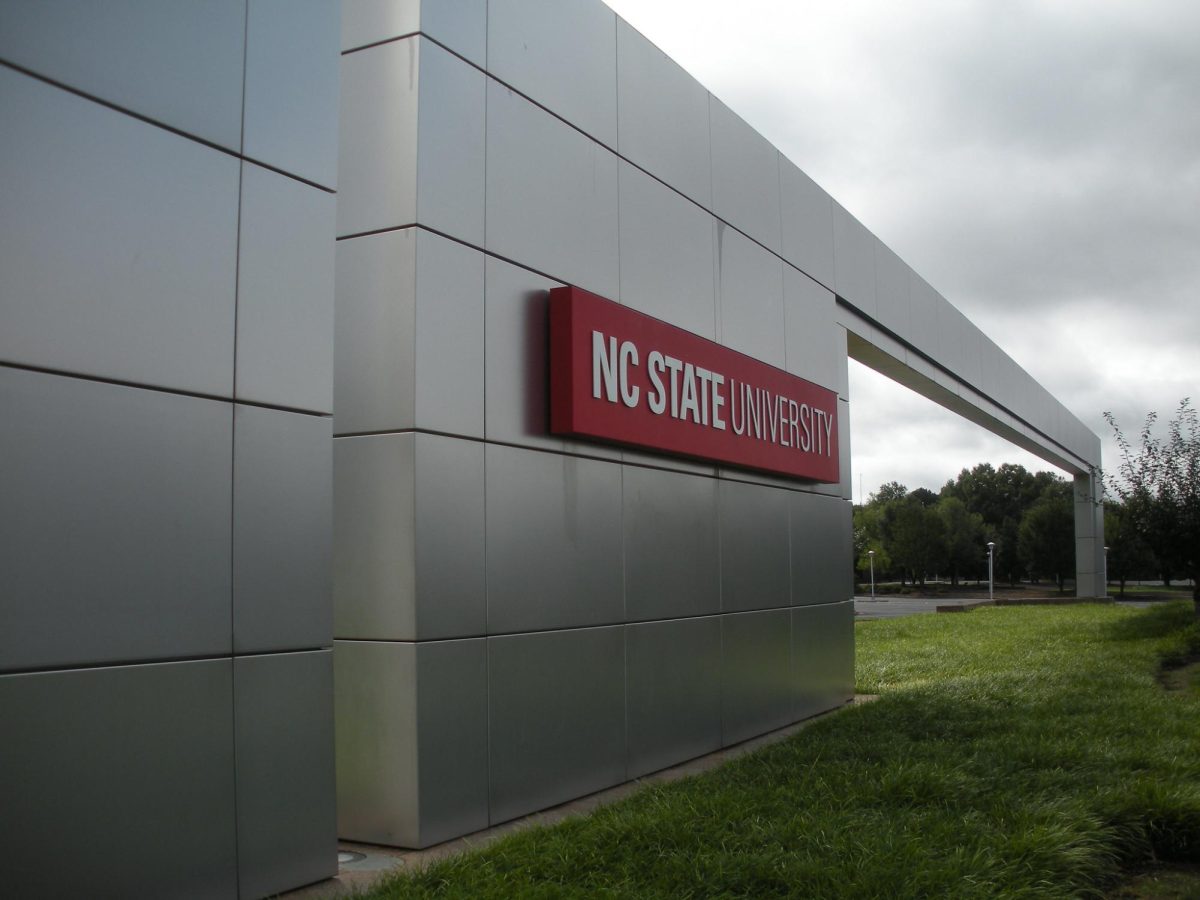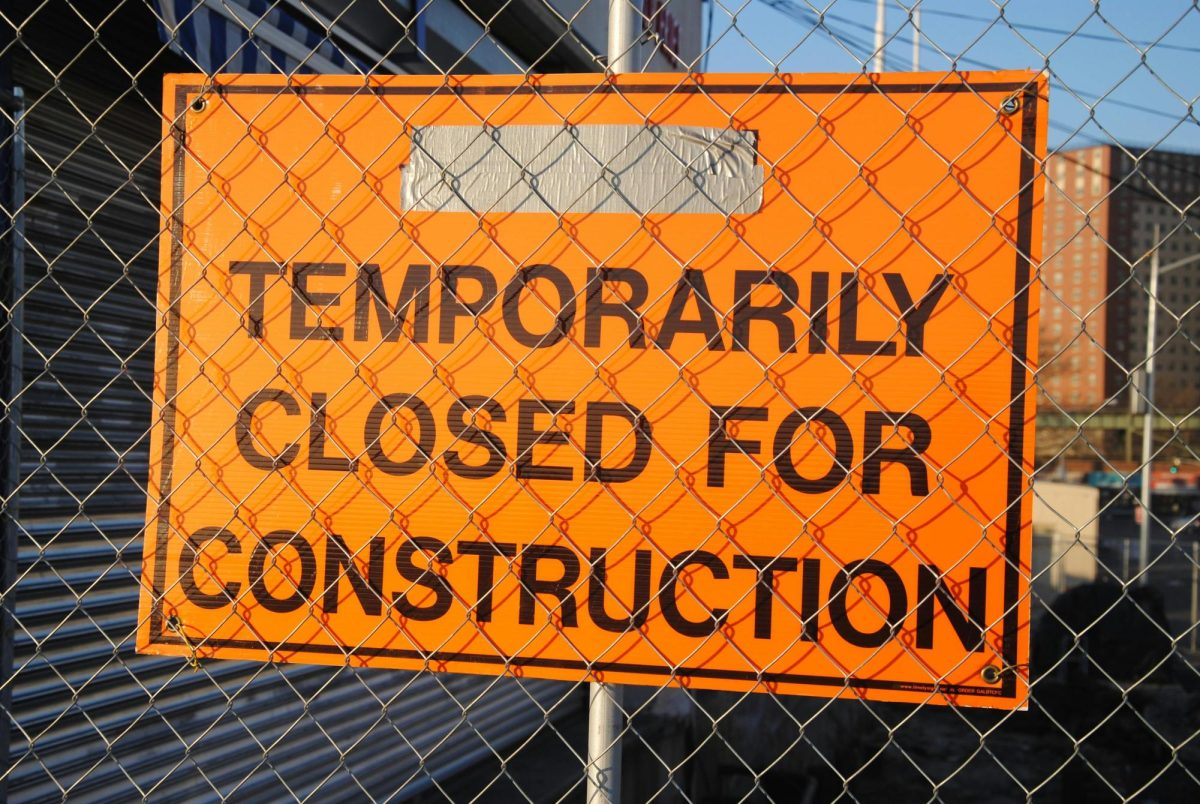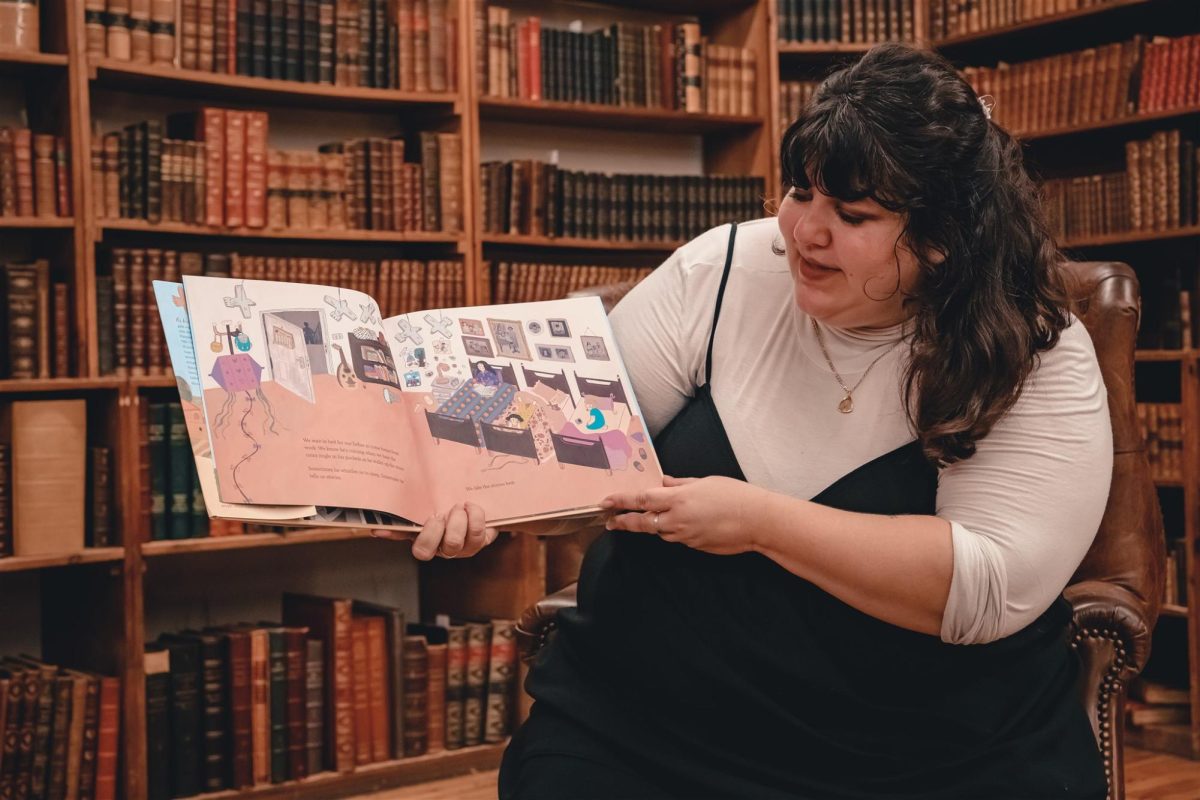Despite being in the early stages of his second term, President Donald Trump has already made significant overhauls to U.S. immigration policy, raising concerns among many immigrant communities.
The Nubian Message highlighted some of these updated policies and Executive Orders and spoke to the immigration attorney for University Student Legal Services at NC State to discuss the legal standing of these changes, what undocumented students can do and what resources exist.
Policy Changes and Executive Orders
One major change the Trump administration made was rescinding the Biden administration policy on “protected areas.” This entailed that enforcement actions, such as arrests, should not be taken in or near areas that provide essential services, including schools, healthcare facilities, places of worship, playgrounds and foster care facilities, domestic violence shelters, disaster relief centers and more.
While certain school districts have tried to restrict ICE agent entry, these policies are dependent on the facilities themselves, that “have only so much discretion.”
Trump also announced plans to expand the U.S. naval base facility at Guantanamo Bay to hold 30,000 immigrants. He said of those he would be deporting, “Some of them are so bad, we don’t even trust the countries to hold them because we don’t want them coming back,” raising questions about the length migrants would be held for.
Additionally, this move raised concerns over immigrant’s rights, as the facility is most well-known for housing suspected terrorists, some of whom never received a trial.
On his Inauguration Day, Trump issued an Executive Order intended to end birthright citizenship. Immediate lawsuits from the American Civil Liberties Union, among others, followed. The order was blocked by two federal judges. However, the legality of this is likely to be disputed for quite some time.
Legality and Services
Hoang Lam, an Immigration Attorney for University Student Legal Services at NC State, said one of the hardest parts of his job is that “processing times for a lot of cases are taking longer,” which puts people’s lives on hold and creates a lot of uncertainty.
He pointed to an example of a student asylum-seeker, whose government tried to wrongfully arrest and prosecute her. This student did not receive an asylum interview for nearly seven years, leading their office to file a lawsuit against the federal government, which they won. Her case was thankfully approved in December but Lam added that he imagines “there are many other students here too in that situation,” or similar cases.
Due to processing times, Lam recommends students explore and file for any immigration benefits they may be eligible for as soon as possible and pay close attention when filling out applications. During Trump’s first term they could get rejected for things as simple as leaving questions that did not apply to them blank instead of putting “not applicable.”
When asked about the specific policy changes and statements made by the Trump administration, Lam first addressed the promise of mass deportation, saying, “whether the government can detain all the people they want is questionable,” as “it would likely require local law enforcement and [state] government cooperation.”
Lam also spoke about the detention facility in Guantanamo Bay, sharing that he had previously done deportation defense work. Detainee cases from North Carolina are actually heard in the Stewart Detention Center in Lumpkin, Georgia, as the immigration court in Charlotte only does non-detainee cases.
Lam pointed out some of the challenges that come with this, saying that this detention center is quite remote, making it, “very difficult for [families] to visit and for attorneys to meet with their clients and prepare the case.”
“So imagine Guantanamo: how are attorneys going to get there?” he said, adding that he expects legal challenges.
When asked how he sees the move to end birthright citizenship playing out, Lam said he anticipates, “that the courts will all deny,” this executive action.
Trump has also proposed canceling the visas of students who participated in pro-Palestinian protests. Lam says while the legality of this move “definitely is a gray area,” he adds that the administration could rely on the Supreme Court case, Kleindienst v. Mandel, to argue precedent, saying, “I think it will be challenged and litigated. I just don’t know what the outcome would be.”
Lam said there has been an increase in both undocumented students and students whose parents are undocumented seeking the office’s help. One situation he highlighted was the administration’s move to terminate temporary protective status for Venezuelans, setting them to expire in April. This move left students in an anxious limbo and while he says, “some are able to possibly get other immigration options so that they could continue to live, study and work here,” he adds that “some might not have those options and are subject to the deportation [order].”
He recommends that even students with valid visas who are, “on a list of countries that were subject to previous travel bans or countries that have not cooperated with the administration in terms of accepting deportees,” consider not leaving the U.S. Lam pointed to instances of Iranian students with valid visas who left during Trump’s first term and were turned away by U.S. airports when trying to return.
He said, “Immigrant students, and even U.S. citizen students with immigrant families, should be concerned. They should try to learn as much as they can about any immigration developments. They should consult with immigration attorneys, whom they trust, and although this is an anxiety-provoking period of time, the more prepared they are, the more likely they can weather through the next four years.”
Lam also adds that he, unfortunately, “would have to advise students to be more discreet in how they express their views on social media and with the press because anything that they say can be interpreted as against America or having views that are against American foreign policy.”
He said people should litigate any delay or denial of their case and mentioned that some immigration rules have to go through a public comment period during which the agency has to review every comment submitted. He encouraged students to try and lobby against any rules adverse to immigrants if they can, as it will take longer for these rules to go into effect.
Speaking to students with undocumented family members specifically, Lam said, “They should know their rights, including the right to remain silent.” He added that they do not have to allow immigration authorities into their home without a judicial warrant and do not have to state where they were born, or their citizenship status. He recommends undocumented people have contingency plans and let loved ones know where they are in the event that they are detained. He said “They should explore immigration options in other countries,” as well.
Finally, Lam said, “Our office provides legal services for students for free,” adding that they are, “One of the few University Student Legal Services offices that have an immigration attorney on staff, so we are here for them.”
Some of the services Lam’s office assists with include helping students who are citizens with undocumented parents prepare the Power of Attorney in the event that their parents are detained and deported, allowing the students to take care of their parents’ finances and any siblings under 18.
Additionally, they help students apply for green cards, citizenship, change of status and, “basically any immigration area except for employment petition related to the green card process based on someone’s skills.”
Organizing as a Community
The Nubian Message also spoke to Tiffany Jones, with Students United for Immigrant Equality at UNC, who said, “For those wanting to help the immigrant or undocumented community, a good way is to just stay informed.”
Jones also encouraged students to take care of their mental health saying, “These things that the Trump administration have been promoting, a lot of times, they are unconstitutional, but it kind of just takes over the news coverage, and it sparks a lot of fear. That doesn’t necessarily mean that these things are actually going to be passed and fear is kind of what he’s preying on.”
While she acknowledged that the news is often hard to hear, she added, “Don’t turn a complete blind eye to it because whether or not we’re looking at it, these things are going to happen.”
“It’s now more than ever that those who are engaged in social justice work really need to kind of step up and show out because we’re going to have to be working 10 times harder than we ever have before.”
She also said that SUIE is “hoping to see more solidarity between communities,” highlighting a recent protest on UNC’s campus that brought several different groups together.
She ended by emphasizing, “Taking care of yourself and also the people around you, your community; and really just looking out for one another, even if you haven’t talked to an organization or a specific person before, because, in some form, we’re all going through it, but staying united helps us get through it.”
Resources
Lam provided a list of non-profit immigration service providers across the state of North Carolina, with many being free-of-cost (pro bono) or low-cost (low bono).
Highlighting Triangle area resources, for Wake County, the providers are: Apex Immigration Services, Justice Matters in Raleigh, North Carolina Justice Center, University Student Legal Services and The U.S. Committee for Refugees and Immigrants’ North Carolina office.
In Durham County: Justice Matters also has an office, along with Church World Service and World Relief.
In Orange County: UNC School of Law Immigration Clinic and the Refugee Support Center.
Additionally, Legal Aid’s Immigration Pathway for Victims and Elon Law School’s Humanitarian Immigration Law Clinic serve anyone in all 100 North Carolina counties.
This list includes resources outside of the Triangle as well, to see a breakdown of the services and contact information for each continue reading below.
Serving all 100 North Carolina Counties
Elon Law School’s Humanitarian Immigration Law Clinic
-
- Citizenship, green card, or employment authorization for ORR-eligible populations.
- N-600 certificate of citizenship for children regardless of category of admission.
- Accepts referrals year-round, but initiates new cases three times a year during the academic calendar when law students are in session (fall, winter, spring).
- Services are free of charge, but an indigence and eligibility screening are required.
Legal Aid’s IMMPAV (Immigration Pathway for Victims)
-
- Serves victims and survivors of domestic violence, sexual abuse, or human trafficking meeting low-income screening requirements based on the federal poverty guidelines. Focuses on U visas, T visas, VAWA/751 cases, and some SIJS for abused kids.
- Services are free.
Triangle
- Primarily family-based immigration applications focused on low-income refugees and immigrants.
- 1 accredited representative and 3 partially accredited representatives
- (919) 589-5231, [email protected]
Church World Service (Durham)
- Refugees, asylees, parolees and immigrants.
- Low-cost adjustment of status, naturalization, family reunification, and family immigration services.
- Central American Minor AORs
- Unaccompanied Minor program that provides legal representation to unaccompanied minors (very limited capacity for community referrals).
- 3 attorneys and 4 accredited representatives
- (919) 680-3585
Duke Law School immigration clinic
- Immigration and family law services and have offices in Durham and Raleigh.
- Primarily T, U, VAWA, SIJS, adjustment based on those grounds, and DACA renewals.
- Some asylum and removal defense, which is limited to Durham residents only.
- Third-party custody matters, SIJS-eligible custody cases, and some adoptions (primarily referred by Durham DSS).
- 4 immigration attorneys and two case specialists/paralegals
Refugee Support Center (Orange County)
- 1 accredited representative
UNC School of Law immigration clinic
University Student Legal Services
- Family-based and humanitarian cases, including adjustment, consular processing, citizenship, change/extension of status, asylum, TPS, DACA, waivers, and F and J issues.
- Serves only students at North Carolina State University.
- 1 attorney
- [email protected]
U.S. Committee for Refugees and Immigrants (North Carolina office)
World Relief (Durham)
- 2 accredited representatives
- [email protected]
Greensboro
- Accredited representatives
- [email protected], [email protected]
Center for New North Carolinians
- Pro bono for naturalization, Afghan assistance (including asylum), refugee and asylee green card.
- Low-bono for family petitions, DACA, TPS, I-90, consular processing, travel documents, fiancé visas, and removal of conditions.
- 1 attorney and 2 accredited representatives
- (336) 334-5411, [email protected]
- Pro bono for unaccompanied minors, Afghan/Ukrainian/Cuban/Haitian parolees, and refugee AOS clients.
- Low-bono services including naturalization, adjustment of status, refugee travel documents, family-based applications, and K visas.
- No geographic or income limitations.
- 8 attorneys and 2 accredited representatives
- (336) 825-4236, [email protected]
Jalloh’s Upright Services of NC
- General immigration application filings and representation; refugee and asylum application assistance; fee and disability waivers; family relative petitions and permanent residence/green card processing; citizenship and naturalization process.
- Accredited representative
Charlotte
Carolina Refugee Resettlement Agency
- Refugees, asylees, parolees and immigrants, Afghans with all type of cases, UHP TPS and UHP EADs, and Haitian and Cuban EADs.
- Low-cost adjustment of status, naturalization, and family immigration services.
- 1 attorney and 1 accredited representative
Charlotte Center for Legal Advocacy
- Affirmative asylum and Special Immigrant Juvenile Status.
- Removal defense, including asylum, Special Immigrant Juvenile Status, U and T Visas, family-based petitions, cancelation of removal, and prosecutorial discretion.
- 7 attorneys and 6 paralegals
- Serving refugees, asylees, and Cuban parolees free of charge.
- Low-cost adjustment of status, naturalization, family reunification, and family immigration services to qualifying immigrants in the greater Mecklenburg area (must be under 300% federal poverty guidelines).
- 3 attorneys, 1 accredited representative, and 2 legal assistants (one of whom is part-time)
- (704) 333-8099 and ask to be transferred to the legal department for intake scheduling.
Boone
Immigrant Connection of the High Country
- Serving the High Country with legal, language, and citizenship resources.
- Mainly with family-based petitions, but screens for any type of relief and refers out those cases that require an attorney.
- Services are low cost but will work with anyone regardless of their ability to pay.
- 2 accredited representatives and various other support staff
Winston Salem
- Citizenship; family-based, Cuban, and U visa adjustment; I-90; I-751; DACA; TPS; K1 petition; consular processing; and advance parole.
- Not taking new U visa, VAWA or provisional waiver cases at this time.
- Provide services on a sliding scale.
- 1 full and 1 partial accredited representative
- (336) 722-7040







